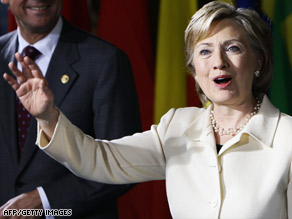
Palestinians at home and in the Diaspora are hoping that the Egyptian-sponsored national reconciliation talks between Fatah and Hamas in
The Palestinian national cause has suffered immensely as a result of the enduring crisis as the apartheid Israeli regime sought relentlessly to utilize internal Palestinian divisions to consolidate its repression and escalate its crimes against the Palestinian people.
Moreover,
The national reconciliation talks started formally in
Following the initial meeting, al-Zahar and al-Ahmed pointed out in a joint peace conference that the meeting was positive.
The two revealed that both movements agreed to take a number of confidence-building measures, including putting an end to politically motivated arrests, releasing a significant number of political prisoners and terminating incitement and media attacks.
The two movements also pointed out that five committees were formed with the task of carrying out what was agreed upon.
Al-Zahar said that as many as 400 Hamas members and supporters were being incarcerated in the
Al-Ahmed revealed that Hamas had lifted house arrests imposed on a number of Fatah leaders in the Gaza Strip. He added that “good will” was the main guarantee for the success of the internal dialogue and for confronting the Israeli aggression.
Al-Ahmed also revealed that the two sides agreed to form a government of national reconciliation.
In a press release, the two delegations said, “We have come to
Asked if the prospective reconciliation agreement would involve recognition by Hamas of Israel, al-Zahar said, “We will not recognize
He added that “the objective circumstances were now more adequate and more conducive to effecting a successful dialogue.”
Favourable international atmosphere
The national reconciliation talks in
In the last week of December, the Israeli army carried out a genocidal blitzkrieg against
Some influential Fatah leaders in Ramallah are also believed to have colluded with
However, all these designs utterly failed and Hamas emerged from the one-sided war politically stronger and far more popular than before the war.
This apparently played a significant role in getting Fatah and the American-backed Palestinian Authority to abandon their erstwhile plans to topple Hamas and re-conquer the coastal enclave.
More to the point, two years of draconian measures against the Hamas government, including an extremely harsh blockade that effectively pushed the Gaza Strip to the brink of disaster failed to make Hamas cave in, which also convinced the international community that it was inescapable to talk with Hamas.
This impression gained momentum and became apparent especially after the departure of the Bush administration and the advent of the Obama administration, with the latter signaling that it wouldn’t stand in the way of a Palestinian national unity government comprising Hamas and Fatah.
In recent weeks, there have been many signs indicating that the West, especially the European Union, may be on its way to initiating contacts with Hamas.
On Wednesday, 25 February, a group of former peace negotiators urged the world community to engage Hamas, saying the policy of shunning and boycotting the Islamic liberation movement was “futile.”
“The policy of isolating Hamas cannot bring about stability. As former peace negotiators, we believe it is of vital importance to abandon the failed policy of isolation and to involve Hamas in the political process,” the group said in a letter published in the British newspaper, the Times on 26 February.
The letter said the futility of the policy had been demonstrated by the recent Israeli blitz against
“Whether we like it or not, Hamas will not go away. Since its victory in democratic elections in 2006, Hamas has sustained its support in Palestinian society despite attempts to destroy it through economic blockades, political boycotts and military incursions.”
The letter was signed by several former negotiators, including former Australian Foreign Minister Gareth Evans, former United Nations Special Coordinator for the Middle East Peace Process Alvaro
Earlier, British Foreign Secretary David Miliband was quoted as saying that talking to Hamas was “the right thing to do.”
The increasing international propensity to talk with Hamas has undoubtedly caused a lot of bitterness and anger within Israeli political circles.
On Thursday, 26 February, the right-wing Israeli newspaper, the Jerusalem Post, quoted an advisor to the Prime Minister-designate as urging U.S. Secretary of State Hillary Clinton to boycott a prospective Palestinian national unity government that includes Hamas and Fatah.
Zalman Shuval, a right-wing extremist and proponent of apartheid, said
“We shall try to convince our American friends that this is not something that would help the peace process, and that it would only make it easier for all sorts of other players—the Europeans and the Russians—to deal with Hamas.”
























